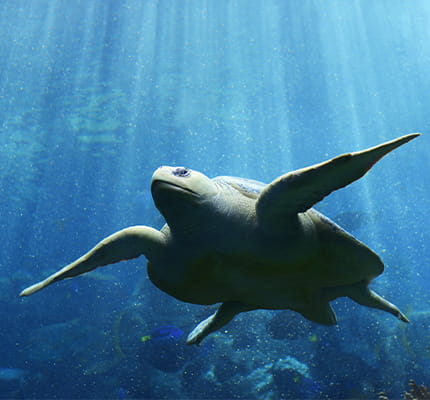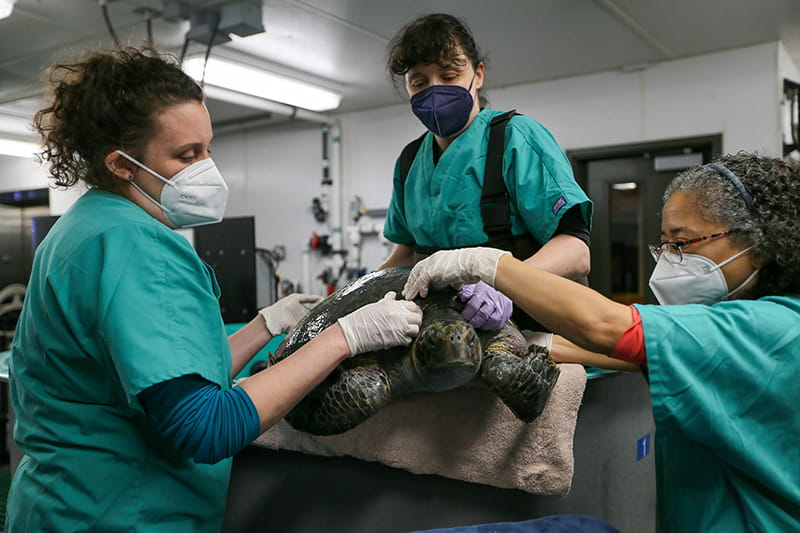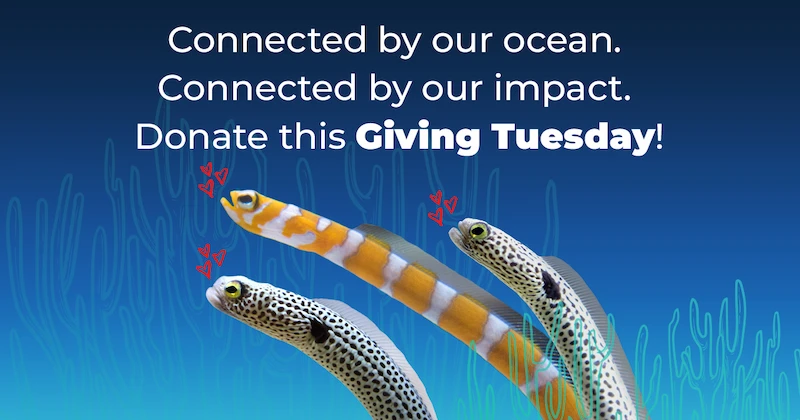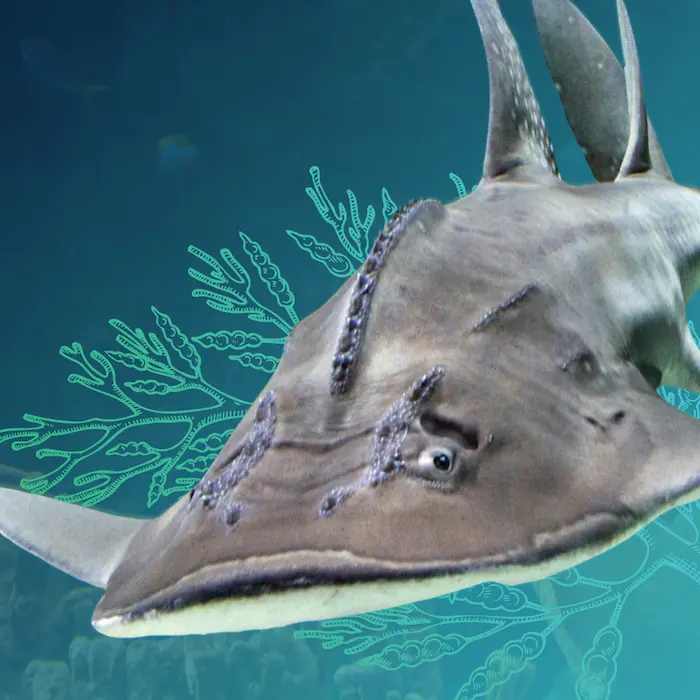
Like all reptiles, olive ridley sea turtles (Lepidochelys olivacea) and green sea turtles (Chelonia mydas) cannot regulate their body temperature (they’re cold-blooded). Although they are found worldwide, they prefer warm or tropical waters and a little time on a sunny beach. Yet over the past 10 years, more than four dozen sea turtles have been stranded on Washington and Oregon beaches.
Cold-stunned and stranded

Aside from nesting season when females gather on beaches to lay their eggs, olive ridley and green sea turtles do not typically come ashore—that is unless they are hypothermic, sick, or injured. Strandings occur most often in late fall and early winter when ocean conditions shift and sometimes trap turtles in colder water. As their body temperatures drop, “cold stunning” sets in. They lose their ability to swim and feed. Their immune systems shut down. At that point, their only hope is for currents to take them to shore where someone just walking the beach will see them and call for help. Trained responders take stranded sea turtles to a rehabilitation facility, such as the Seattle Aquarium, one of only two such centers in Washington. Because sea turtles are listed under the Endangered Species Act, facilities must be permitted by the U.S. Fish and Wildlife Service.
While sea turtles are not usually among the animals in our care, the Seattle Aquarium does play an important role in rehabilitating wild turtles when they become stranded in Washington state. Once a stranded turtle is brought to us, we bring it to a behind-the-scenes animal care area where we work to raise its body temperature slowly, treat it for hypothermia and assess any underlying illness or injury, including dehydration, pneumonia and shell or bone fractures.
Treating and rehabilitating sea turtles is a lengthy process that typically takes about eight to 10 months, starting at the Seattle Aquarium. The second phase of rehabilitation takes place in the deep pools of Sea World San Diego to confirm and strengthen the turtle’s ability to dive safely. Once recovered, healthy turtles are typically released back into the wild in more southern waters.
What to do if you spot a stranded animal on the beach
If you find a stranded sea turtle or marine mammal, you can call NOAA’s West Coast Marine Mammal Stranding Network at 1-866-767-6114.
You can also report sick or hurt amphibians, birds, mammals and invertebrates to the Washington Department of Fish and Wildlife.



